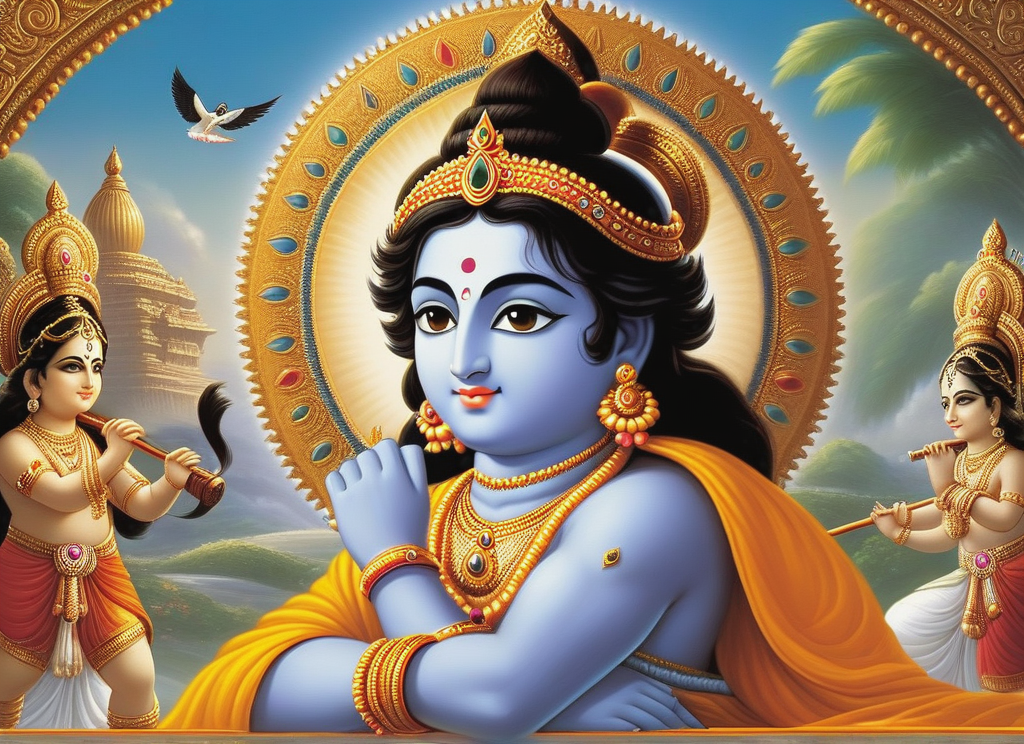The Bhagavad Gita is one of the most influential and revered texts in Hinduism, and for good reason. This ancient scripture contains profound wisdom to help us navigate life’s challenges and find more profound meaning and purpose.
The Bhagavad Gita is a conversation between the warrior Arjuna and his charioteer, the god Krishna, on the eve of a great battle. Arjuna is filled with doubt and uncertainty about his role in the conflict, and Krishna offers relevant guidance and insight to all of us.
One of the Bhagavad Gita’s critical teachings is the dharma concept. This Sanskrit term can be translated as “duty” or “righteousness,” but it encompasses much more than that. Dharma is the natural order of the universe, the underlying principles that govern all of existence. We must live in harmony with these principles, act according to our true nature, and fulfill our unique purpose in life.
Krishna teaches Arjuna that he must perform his duty as a warrior, not because he desires victory or glory, but because it is his dharma. He reminds Arjuna that all beings are subject to their unique dharma and that it is only by fulfilling this duty that we can find true fulfillment and happiness.
Another important teaching of the Bhagavad Gita is the concept of karma. This is the idea that every action we take has consequences and that we are responsible for the outcomes of our choices. Krishna tells Arjuna that he must act without attachment to the fruits of his actions but with a steadfast commitment to his duty. He encourages Arjuna to surrender his ego and act according to the divine will.
Krishna’s teachings on karma have profound implications for our lives. They remind us that we are not powerless victims of circumstance but that we have the power to shape our destiny through our choices and actions. They also remind us of the importance of integrity and personal responsibility and of the need to act with compassion and empathy towards others.
The Bhagavad Gita also offers insights into the nature of the self and the ultimate reality of the universe. Krishna teaches Arjuna that the true self is infinite and eternal and that it is not subject to birth or death. He explains that the universe is a manifestation of the divine and that all beings are ultimately one with the divine.
These teachings can be transformative for those who are willing to embrace them. They offer a vision of life that is grounded in a deep sense of purpose and meaning and that is infused with a profound sense of connection and unity with all of creation.
Of course, the Bhagavad Gita is not without its challenges. Some of its teachings can be difficult to understand or to reconcile with our modern sensibilities. For example, the concept of caste, which is mentioned in the text, is a source of controversy and debate among scholars and practitioners.
However, it is essential to remember that the Bhagavad Gita is a product of its time and place and that it reflects the cultural and social context in which it was written. At its core, the text offers timeless wisdom that can be applied in any context or era.
If you are interested in exploring the teachings of the Bhagavad Gita, there are many resources available to help you. There are numerous translations and commentaries on the text, as well as classes, workshops, and retreats offered by teachers and organizations around the world.
Ultimately, the Bhagavad Gita is a powerful reminder of the potential that lies within each of us. It offers a path to inner peace and fulfillment that is accessible to anyone, regardless of their background or beliefs. By embracing its teachings, we can discover the wisdom of Krishna’s words and find a deeper meaning and purpose in our lives.

